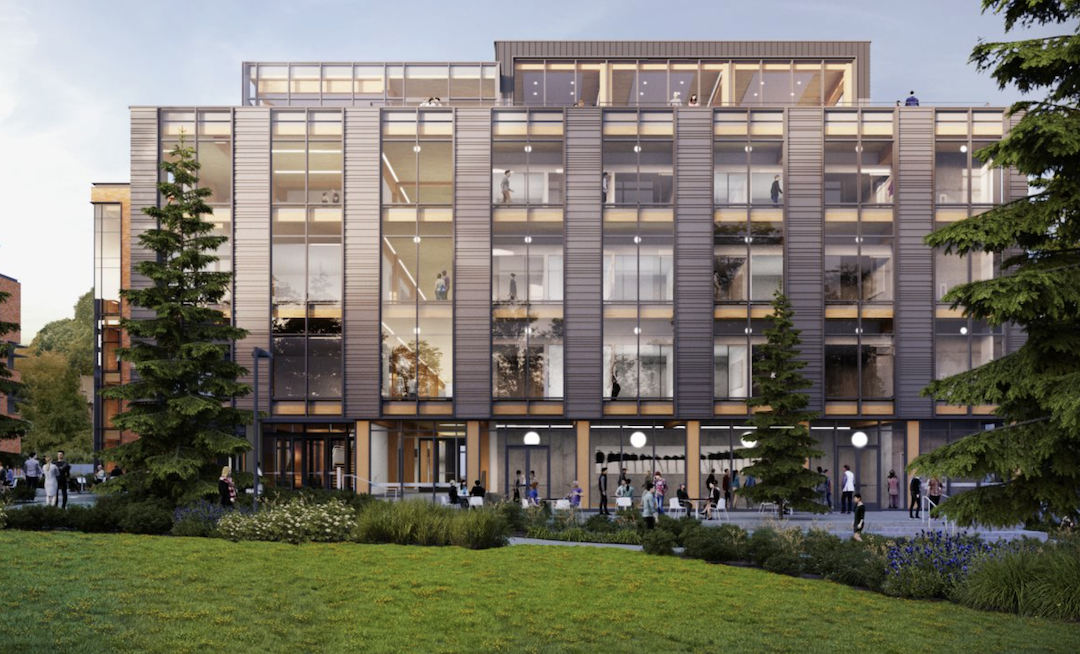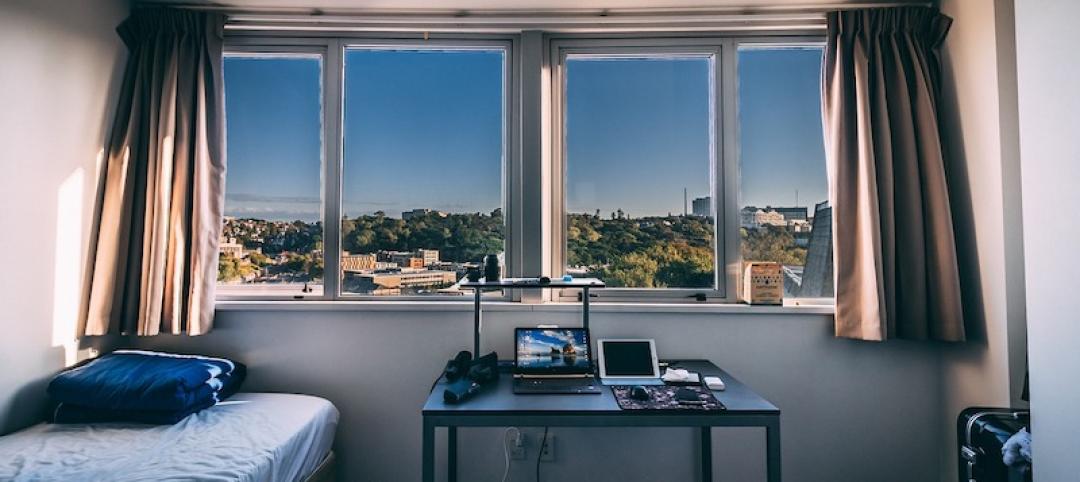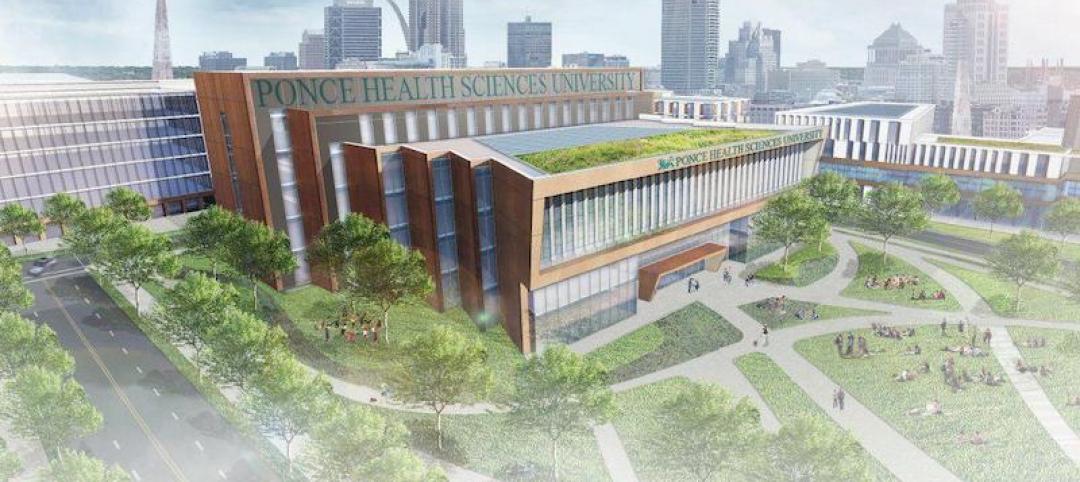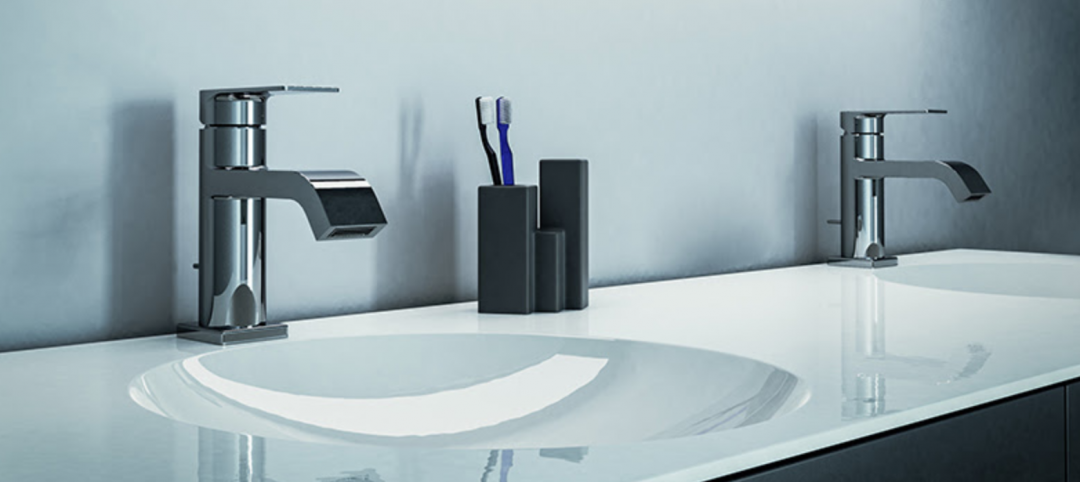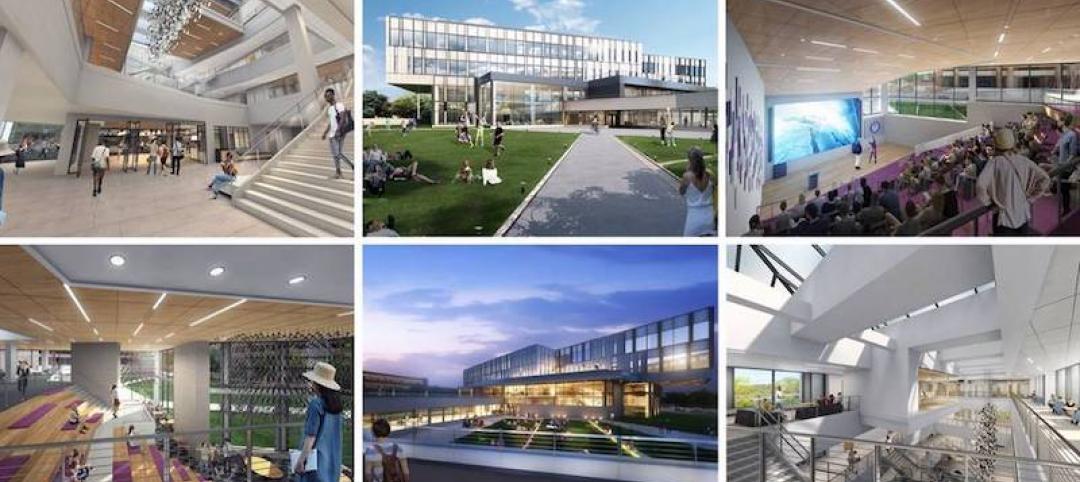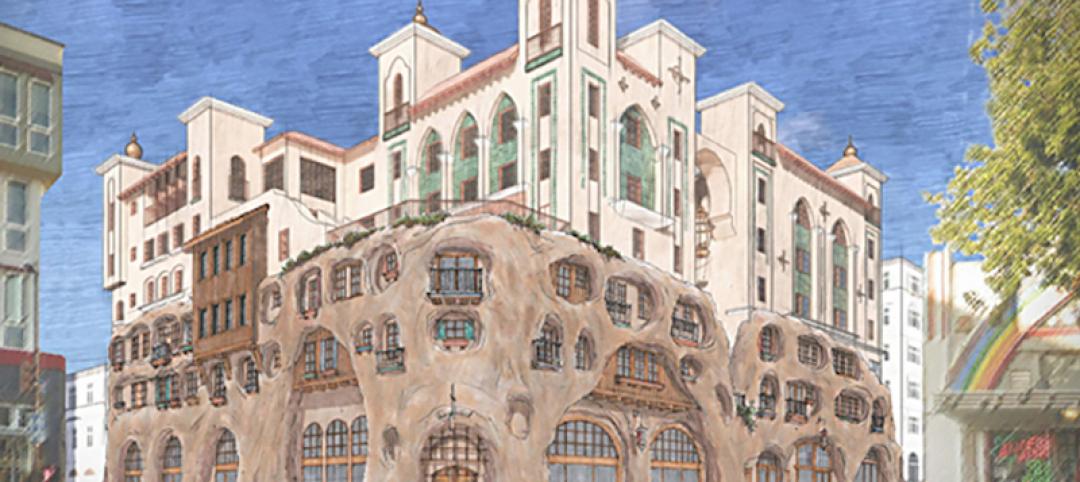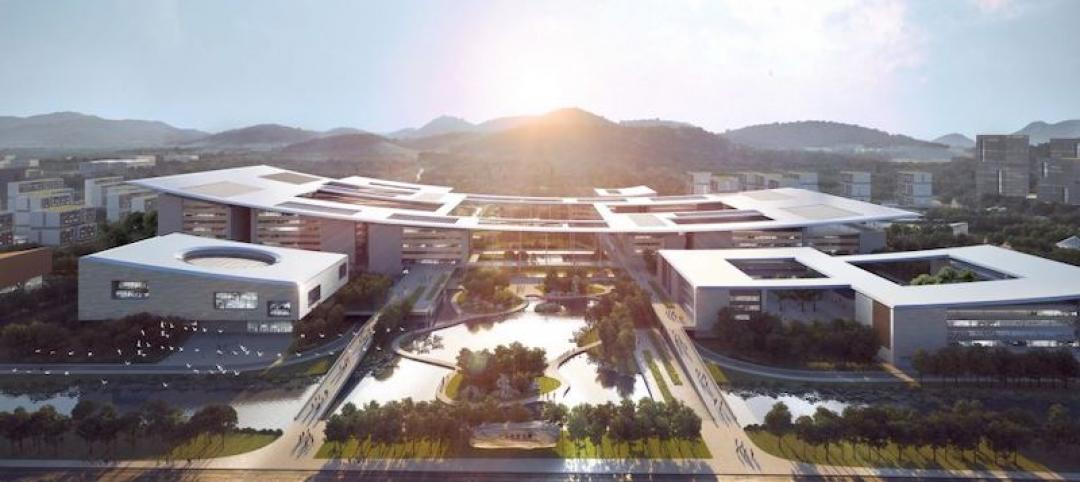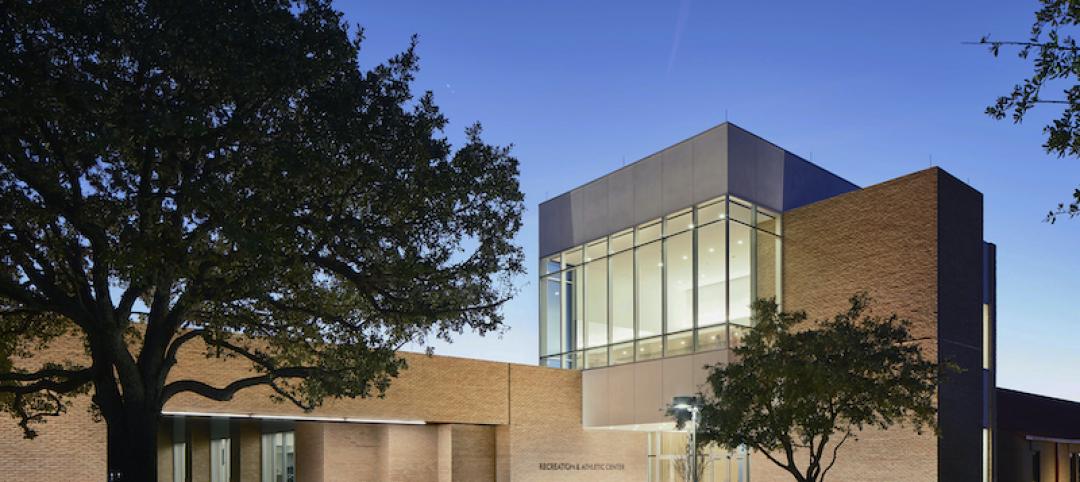Founders Hall, a new 85,000-sf mass timber structure, has topped out at the University of Washington. The project expands the Michael G. Foster School of Business while revitalizing the campus core by framing the northeast edge of historic Denny Yard.
The building is organized in two parts to optimize program functionality of workplace, learning, and collaboration activities. Active-learning, collaboration, and event spaces are positioned at the south edge of the site to engage the distinctive qualities of the Denny Yard landscape and provide a link to the pedestrian pathways that traverse the precinct. Landscaped terraces and rain gardens reinforce the natural slope and evergreen plantings of the open space.
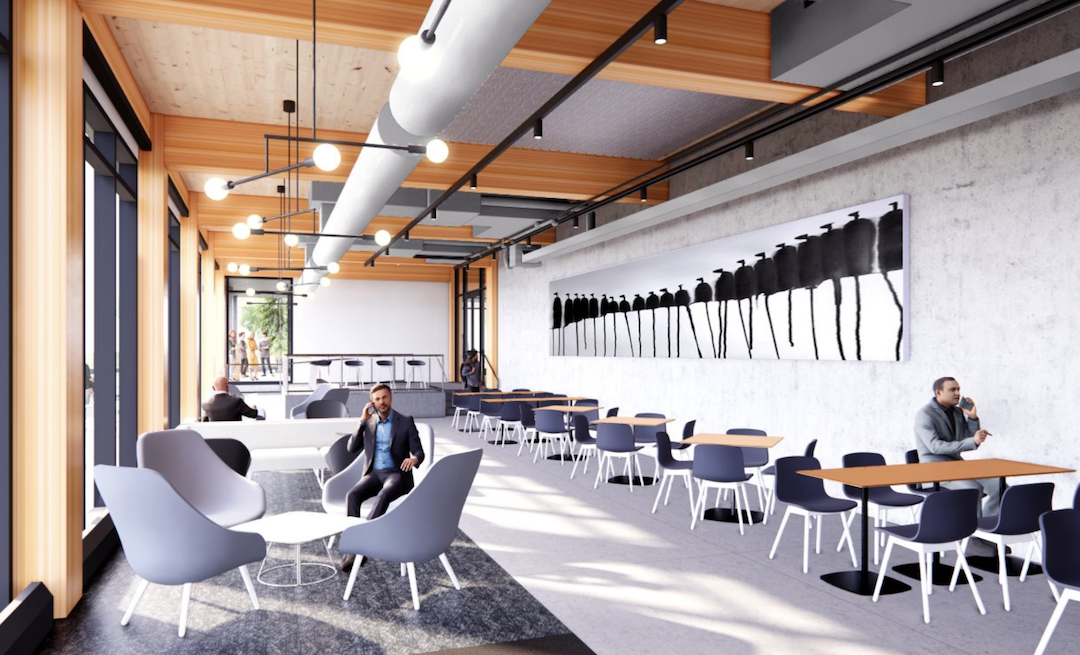
An open circulation space serves as a central connector with a feature stair that provides shared access to tiered classrooms, student commons, a special event venue, and an outdoor terrace. The tiered classrooms are designed to serve group sizes from 65 to 135 students with active-learning functionality. Twenty-eight team rooms, four conference rooms, a student commons, and an event forum with an adjacent roof terrace further activate the collaboration zone.
A series of collaboration spaces located throughout the building are designed to encourage teamwork and foster spontaneous interaction among students, program staff, and the broader business community. Classrooms, conference facilities, and recruiting spaces will provide expanded opportunities for community and corporate engagement through hosting events and inviting outside speakers, alumni, and corporate recruiters.
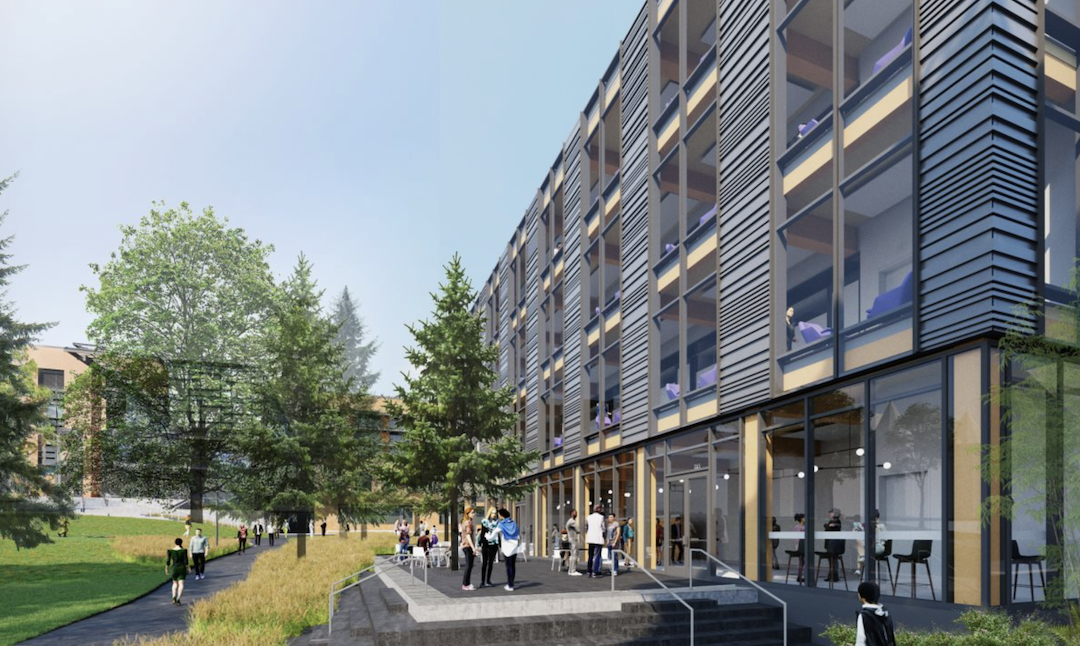
Founders Hall is designed for sustainable performance and social connection. The project is a model for sustainable design at the University of Washington and embraces UW’s Green Building Standards, which has helped the project reduce emissions from embodied carbon by 83%.
“The 83% reduction in operational carbon is a result of careful balancing between envelope performance, the mechanical system design, and the users’ commitment to leverage operable windows and ceiling fans in lieu of energy-intensive air conditioning,” said Robert Smith, Principal, LMN Architects, in a release.
Founders Hall is slated for completion in the summer of 2022.
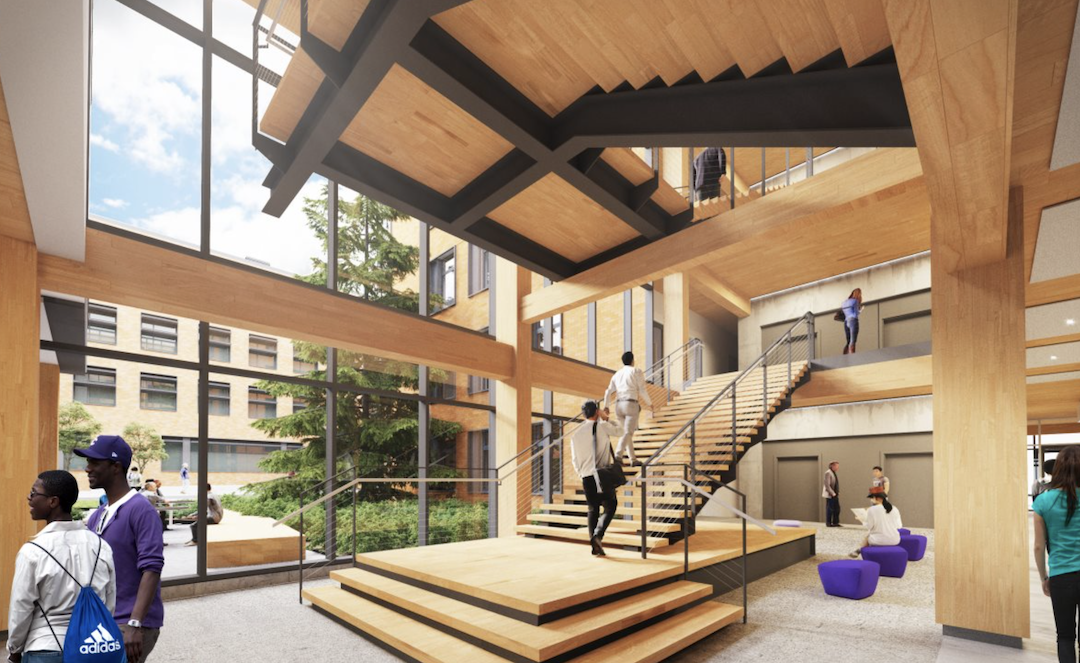
Related Stories
Coronavirus | Mar 30, 2020
Learning from covid-19: Campuses are poised to help students be happier
Overcoming isolation isn’t just about the technological face to face, it is about finding meaningful connection and “togetherness”.
University Buildings | Mar 26, 2020
How to convert college dorms to support the coronavirus crisis
While student dormitories are well-suited to certain alternate healthcare uses — from housing clinical staff to treating low-acuity patients — there are important elements to consider when exploring how to convert them for coronavirus treatment.
University Buildings | Mar 24, 2020
Ponce Health Sciences University to build a medical school in North St. Louis
Clayco will build the project.
Plumbing | Mar 13, 2020
Pioneer Industries launches new website
Pioneer Industries launches new website
University Buildings | Mar 9, 2020
Designing campus buildings through an equity lens
As colleges become more diverse, campus conversation is focusing on how to create equitable environments that welcome all voices.
University Buildings | Mar 9, 2020
Auburn University, Robins & Morton open Construction Field Laboratory
Robins & Morton and Auburn University’s College of Architecture, Design and Construction (CADC) recently celebrated the dedication of the Robins & Morton Construction Field Laboratory.
University Buildings | Feb 20, 2020
Kettering University’s new Learning Commons includes a student entrepreneur lab
Stantec designed the project.
University Buildings | Feb 18, 2020
UC Berkeley’s Enclave Apartments features a unique Moorish Castle design
Kirk E Peterson & Associates designed the project.
University Buildings | Feb 10, 2020
Sino-French Aviation University breaks ground in Hangzhou
HENN designed the project.
University Buildings | Jan 27, 2020
St. Edward’s University reveals new Recreation and Athletic Center
Specht Architects designed the building.


